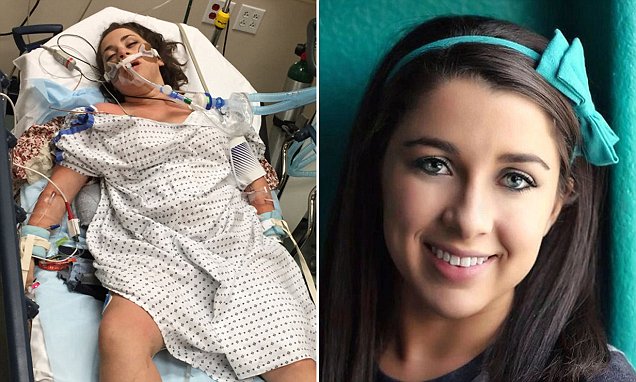When doctors use the term “brain dead,” it’s usually a sign that they believe the patient has no hope of recovery and is basically dead.
But the diagnosis can be widely controversial. “Brain dead” diagnoses have launched public legal battles between hospitals and families over whether the patient really is brain dead and whether they deserve medical care. In many cases, the patients have died; but in others, they have lived or recovered.
A Reno, Nevada student is celebrating her 21st birthday this January – five months after doctors thought she was brain dead from alcohol poisoning.
Hanna Lottritz, a journalism student at the University of Nevada, Reno, shared her story at The Huffington Post to encourage young adults to drink responsibly, but her story also points to the potentially life-threatening dangers of a “brain death” misdiagnosis.
Lottritz collapsed on July 26, 2015, at a music festival in Nevada after agreeing to a drinking competition with a male friend, according to the report. The 20-year-old student, who calls herself competitive, said they played to see who could take the longest chug from a bottle of whiskey. Friends said she collapsed several minutes later, after taking another drink of alcohol.
Not breathing, Lottritz was flown to the hospital by helicopter. When she arrived, her blood alcohol concentration was five times over the legal limit at .41, she said.
Keep up with the latest pro-life news and information on Twitter. Follow @LifeNewsHQ
“I was in critical condition, suffering from acute respiratory failure and acute alcohol intoxication,” she explained on her blog. “The doctors thought I was brain dead because I was completely unresponsive. My pupils were sluggishly reactive, I had no corneal reflex and I wasn’t responding to verbal or painful stimuli.”
Lottritz later shared a photo of herself sprawled on a bed and unresponsive in the emergency room of the Reno, Nevada hospital. She wrote, “… the ventilator was breathing for me. I was completely unresponsive.”
After 24 hours, Lottritz woke up from her coma. She said that she had to be given a respiratory test twice before the hospital staff would remove the ventilator.
“When I passed the second test and the tube was taken out, the doctors and nurses told me how lucky I was to be alive,” Lottritz wrote in a cautionary piece to other college students about heavy drinking. “They told me that they didn’t think I would make it through the night. They asked me if I was trying to kill myself by drinking so much. This question hit me the hardest.”
She turned 21 on Jan. 7. The student said she planned to have dinner with friends and family – “and maybe a glass of wine.”
Had Lottritz been declared brain dead and her doctors determined to pull the plug on her ventilator, she would not be alive today.
Jahi McMath, a young girl declared brain dead, remains alive more than two years after doctors tried to take her off life support. McMath’s family launched a legal battle against the hospital to keep her alive. LifeNews reported that at least three doctors so far say that the young girl, who remains in a hospital, is not brain dead.








